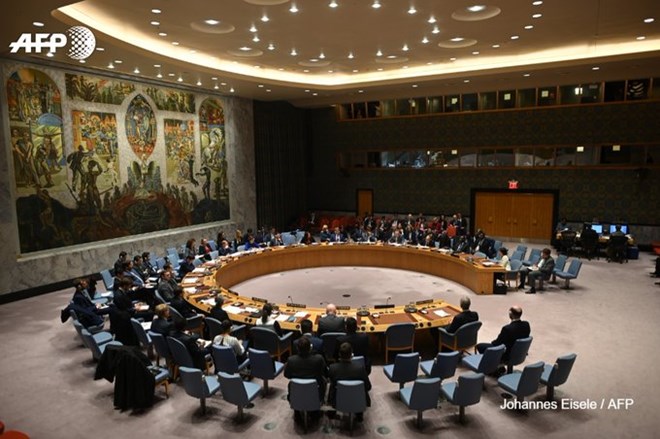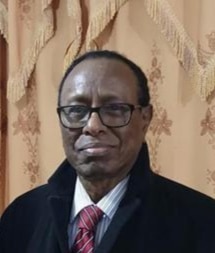
(a) Foreign community representation (b) the single seat assigned to Mogadiscio and (c) the tribal Assemblies (shir)
The first general election law in Somalia was enacted on 31 March 1955 (Ordinannza no. 6 Marso, 1955).
In the face of the difficulties involved in organizing a credible census of the nomadic population, the Administering Authority (AFIS) had introduced a mixed electoral system under the terms of which residents living in the cities and in possession of an electoral card could directly cast their vote, while nomadic populations living in the rural areas expressed their vote through their tribal leaders. Traditional assemblies (shir) to designate electoral representatives for the nomadic population were organized from August 1 to November 30, 1955 throughout the territory. (Decreto n° 93, Maggio 27, 1955).
A total of 616 tribal shir were organized throughout the territory for a population of 772,000, a figure greatly exceeding that which was expected from an estimated population of 1,270,000, considering women and persons under the age of twenty-one did not have the right to vote. (UN Doc. T/1245, May 1, 1956).
The manifestly exaggerated number of rural voters had to be accepted and was added to the 86,000 municipal electors to give a total of 858,000 potential voters nationwide. Then on the day of the election, electoral representatives and municipal electorate voted together. With the adoption of the tribal shir and the indirect electoral system, a clan institution was being formalized, attaching different tribes to designated electoral districts artificially created by the administering authority with the Lega party not standing up against this unfair system.
The successive post-independence civilian administrations were unable or unwilling to reform or repeal the controversial electoral law enacted during the trusteeship regime. The injustice associated with this electoral system has haunted the Lega-led government for all the time it ruled the country (1956-1969).
The territory was divided in 25 constituencies of which six had no contest at all, as, except Dinsor, (HDMS stronghold) only SYL candidates were registered and presented lists (Lista unica). Elections took place in remaining 19 districts.
Mogadiscio and the single seat
One question frequently asked is why Mogadiscio, the most populous urban centre of Somalia, was so underrepresented in the first general election of 1956 with only one seat allocated to it. The answer to this question is simple, although it may sound unconvincing to many: In Mogadiscio, there were no tribal voters or communities of rural population taking part in the election process, as was the case in the outlying districts where overzealous Somali local officials had inflated the number of voters.
Grossly inflated figures were given in many rural areas, particularly where local officials were Somalis belonging to the same tribe or group as the voters, with the connivance of salaried chiefs. Many outsiders were encouraged to attend the shir thus swelling the numbers of tribesmen present at the shir in breach of the electoral system.
In fact, in a number of cases, it was necessary to invalidate the shir vote owing to the efforts of the tribes concerned to inflate their own importance by magnifying their figures.
The sixty seats in the National Assembly were allocated to electoral districts on the basis of 14,302 votes per seat. This rate was considered by the United Nations, as a very low proportion of the population of the territory (UN Doc.T/1245, May 1, 1956).
Seats were distributed in an arbitrary manner to different electoral districts before even the results of the elections were known. In this haphazard method, districts such as Bulo Burti, Bur Hakaba and Baidoa, for instance, were allocated the highest number of seats (5 each). As far as Mogadiscio was concerned, only voters registered in the municipal electoral roll could cast a vote: consequently, with only 18,153 registered voters, Mogadiscio got one single seat. One additional seat was added in 1958.
Electoral system for the Foreign Communities
In the 1950s, there was a strong presence of different foreign communities living in Mogadiscio; the largest one was the Arabs, mainly from Yemen and Aden, followed by Italians, Eritreans and Indians.
For the election of representatives of the foreign communities, a separate electoral system was envisaged (Ordinanza n° 6 Marzo 31, 1956).
Each candidate was to be selected by an Electoral College chosen through a primary election in which all the members of the minority concerned had the right to vote.
The candidate was required to be over twenty-one years old and have been twelve months in the territory (TNA FO/371/118674). The number of National Representatives composed of 70 seats, 10 of which were reserved for foreign ethnic minorities living in the territory, the Italian and Arab communities being allocated four seats each, and the Indian and Pakistani groups one seat each.
All the four Italian representatives elected as Members of Parliament were well-known ardent fascists. (1) Carlo Quaglia, an outstanding Lawyer, elected as Member of Parliament to represent the Italian community of Lower Juba, had a record of having betrayed to Mussolini an anti-fascist plot in which he was involved in 1925, saving his own neck at the cost of his friends. (2) Dr. Vincenzo Calzia, a former executive official of the Italian Ministry of Africa, representing the Italian community of Villabruzzi (Jowhar), was one of the main agitators in the incident of 11 January 1948 in Mogadiscio. (3) Colonel Camillo Giorio, representing the Italian community of Merca, was a member of the military establishment prior to 1941. (4) Only Francesco Boero, a leading businessman representing the Italian community of Mogadiscio, had held no government positions during the Fascist era.
Haji Mohamed Ali Bin Quer and Haji Nasser Ali represented the Arab community of Mogadiscio, Said Mohamed Salim represented the Arab community of Margherita (Jamama) and Ali Maiub Ali the Arab community of Baidoa.
Mr. Damador Tribhonar Shah represented the Indian community and Ahmed Fadel Hasham the Pakistani community.( Corriere della Somalia, Marzo 1, 1956).
The veteran scholar and leader of the Eritrean Community in Somalia, Cavaliere (Cavalier) Sheikh Nour Hussein sat in the Legislative Assembly as representative of the Cultural Association.
Italian MPs usually voted with the government; the Arabs also voted with the government, except when religious factors were involved; the Indians and the Pakistani rarely spoke and were watchdogs of their communities’ interests (TNA FO 371/131460). “The Italians, Arabs and Indians were elected, but they were expected only to contribute towards resolving economic and social problems and not to engage in partisan debate on political questions”, (Castagno)
The 1956 general elections brought about a new development in the sense that they transformed the Territorial Council, the Advisory Body whose members were appointed by the Administrator, into a fully-fledged elective legislative body, with full statutory powers over legislation dealing with domestic affairs (Ordinanza n° 6 Gennaio 5, 1956)
M. Trunji
E-mail trunji@yahoo.com
